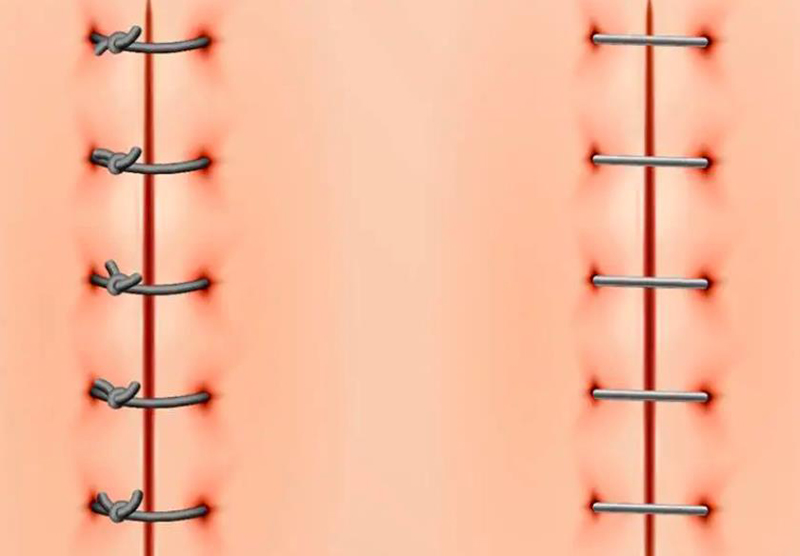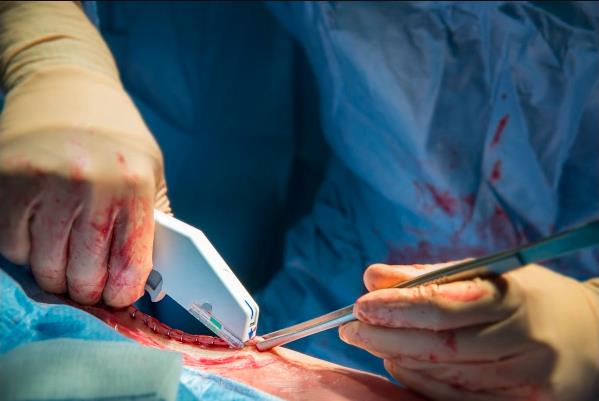are medical staples better than stitches?
Medical sutures refer to special medical threads used for ligation and hemostasis, suture and tissue suture in surgical operations. They are divided into absorbable sutures and non-absorbable sutures. So which one is more advantageous, medical sutures or sutures?

We all know that medical sutures and sutures are commonly used wound closure materials in the medical field. They have their own advantages and disadvantages and cannot be generalized. Instead, they need to be selected according to specific circumstances.
Advantages of medical sutures:
Quick closure: Medical sutures can quickly and easily complete the closure of wounds. They are particularly suitable for large wounds or wounds with less tension that need to be treated quickly. This helps to shorten the operation time and anesthesia time, and reduce the patient's pain and risk.
Reduce the risk of infection: Because sutures are easy to operate, they can reduce the operation time and exposure time during surgery, thereby reducing the risk of infection.
Easy to remove: Medical sutures are usually easy to remove. Patients can easily remove them by themselves or in the clinic under the guidance of a doctor, reducing the need for follow-up visits and the pain of removing stitches.
Advantages of sutures:
Flexibility: Sutures can be precisely adjusted according to the shape and size of the wound to ensure the best closure effect of the wound. Sutures are particularly advantageous for wounds with complex shapes or that require delicate sutures.
Promote healing: Sutures can provide better tissue apposition and promote wound healing. Especially for wounds that require higher tension, sutures can provide stronger support, which helps stabilize and heal the wound.
Bioabsorbability: There are many types of modern sutures, including absorbable sutures. These sutures are gradually absorbed by the body during the wound healing process and do not need to be removed, reducing the patient's pain and the number of follow-up visits.
Comprehensive considerations:
Wound type and location: The type, size, and location of the wound are important factors in deciding whether to use medical staples or sutures. For example, for larger wounds that need to be closed quickly, medical staples may be more appropriate; while for wounds that require delicate sutures, such as facial wounds, sutures are more suitable.
Patient needs: The patient's personal needs and preferences should also be taken into consideration. For example, some patients may prefer to use absorbable sutures to avoid the pain and inconvenience of removing sutures.
Doctor's judgment: The final decision should be made by the doctor based on the patient's specific situation and surgical needs. Doctors will choose the most appropriate closure method based on the wound condition, patient health status and surgical goals.

According to the above description, medical staples and sutures each have their own advantages and applicable scenarios, and it is impossible to simply judge which one is better. When choosing, factors such as wound type, patient needs and doctor's judgment should be considered comprehensively.
